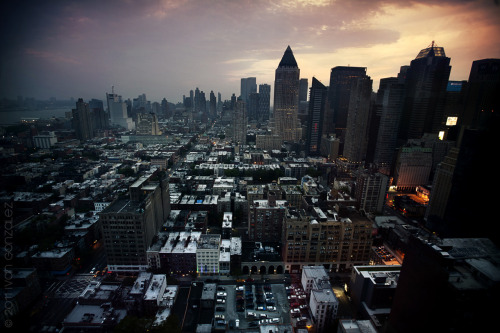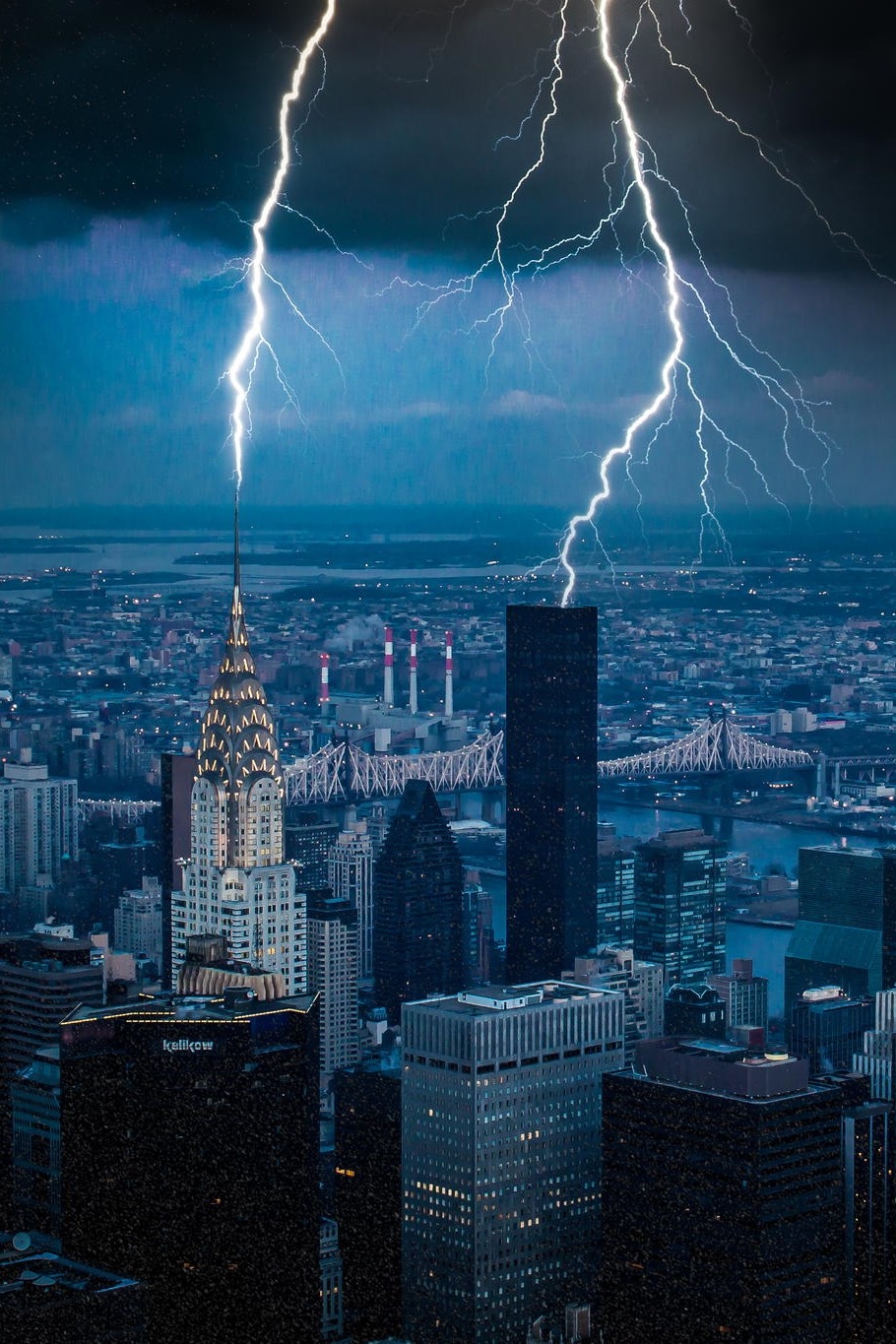For those of you who have somehow managed to miss the very sad news, the great poet Maya Angelou passed away earlier this year. If you do not know who this wonderful lady is, then I would recommend searching her name on Google. (Or having a look at some of the articles posted on the Guardian about her life after her death).
In truth, I had hoped to post an entry about her a while back, though never got around to really thinking about it. So, I have decided to do a close reading of one of Angelou's poems: Awaking in New York.
 |
| Image posted by Ivanrgonzalez |
Awaking in New York - Maya Angelou
Curtains forcing their will
against the wind,
children sleep,
exchanging dreams with
seraphim. The city
drags itself awake on
subway straps; and
I, an alarm, awake as a
rumor of war,
lie stretching into dawn,
unasked and unheeded.
In order to provide a frame to the discussion, I think that it will be useful to discuss the poem in terms of five central oppositions which are demonstrably set up within it. These oppositions are done so dialectically, meaning that they are presented in pairs, with two concepts which are unable to fully co-operate (on account of their being opposite), but are also somehow inadequate on their own, implying that they need their opposite in order to exist, even independently.
Four of the five oppositions are closely linked, almost to the point where, on one reading, it would not be far-fetched to interpret them as ultimately one single opposition constructed by multiple concepts. The fifth opposition, however, whilst not entirely estranged from the others, exists with more independence than the others, and its subject matter seems to dissolve and become lost in favour of other concepts as the poem unfolds.
As it is the first to appear, I shall discuss this oppositional pair first.
The first pair of lines within the poem establish a tension between the curtains and the wind, describing the former as attempting to force their will upon the latter. Curtains are artificial by definition, they are created by man from fabric, another artificial and man made material, and that they are set against the wind, which is a natural phenomenon and, largely, beyond the control of humanity, draws out the opposition of the City and Nature. I use the curtains to represent the city in general, as it is clear from our title that we are situated in New York and furthermore, the use of personification to give the curtains intent ("their will"), plural intent, no less, allows us to use them as a representative token for the will of humanity. Thus, we can read from the opening a comment upon the nature of the urban environment, viewing it in contrast to the natural. This opposition could be alternatively read as a divide between the natural and the artificial.
Moving to the third line, we meet the first mention of sleep, which is to be expected when reading a poem about waking up. This second opposition, waking vs. sleeping, is also bound up with the third opposition: innocence vs. war. The mention of children, perhaps more so because they are sleeping, is a clear reference to innocence, for even the most poorly behaved child is still viewed as an innocent. Furthermore, they are associated with goodness, for they are linked with "seraphim" who, according to theology are the most powerful of the angels, those who deal with God directly. Thus, the children are linked indirectly to God, through religious imagery. Interestingly, they are described as "exchanging dreams", though it is not specified what for. Possibly, the Seraphim are exchanging their own dreams, though we cannot be sure. Even so, the use of the word exchange implies a dual way relationship, a relationship between equals. Within the poem, the children are given a position of great innocence, in which their dreaming gives them an almost direct link to supreme goodness in the figure of God.
War is directly mentioned in the poem, though only in the form of a "rumor", something which is distant. It is bound directly with the persona, who is awaking as this "rumor of war", thus linking war and its inherent violence with the realm of awakeness, thus opposing it to the innocence of the sleeping world, where the children and the angels stand on even footing. The persona describes itself as an "alarm" which implies quickness, panic, alertness, all of which starkly contrast with the mellow image of exchanging dreams. Awakeness is not painted in a favourable light when compared to dreams, a point further enforced by the use of the phrase "drags itself awake", implying that the city is reluctant to move from dream to reality.
Therefore, we have these two stages: the dream inside the individual and the outside, the city. This establishes tension between the concept of the individual and the collective of individuals who dwell in the city, which is the final opposition I will discuss. First however, I wish to continue with this opposition between the inside and the outside. This is evident in the poem beyond the level of the individual and the city, it also exists between the city and that which is outside it.
This division between the city and that which is outside it serves to isolate the city and paint it as a lonely place, in spite of the fact that it is home to approximately eight million people. It is one of the perhaps subtler divisions within the poem, as it is implied rather than outwardly stated. The central implication is within the line "drags itself awake" as this is used reflexively. The city is waking up itself. It is self-sufficient, not needing outside influence. Furthermore, the dawn is seen as something that requires stretching towards, giving it distance. Additionally, the use of the word "rumor" is highly significant, for discussing the "rumor of war" puts that conflict at a distance on two levels. Not only is the war geographically distant (unless, though unlikely, Angelou is referencing some conflict which occurred in New York), it also exists only in rumour, it is yet to happen. The city is thus distanced not only spatially, but also temporally.
"Rumor" is also relevant to the final opposition, the individual vs. the collective. By their very nature, rumours flourish in places where there are lots of people, as they are an exclusively social phenomenon. New York, one might imagine, is the perfect space for such things to propagate, with the vast population creating an incredible word of mouth resource, required in order to create rumours. Rumour is thus a manifestation of the collective. However, rumours and hearsay are often associated with falsehood, thus connecting the collective with mistruth. By contrast, this encourages the equation of the individual and truth. By removing the concept of truth from the collective, or at least through casting doubt over it, we reach a point of fragmentation, where relationships to other people become strained and the persona becomes isolated.
Isolation is the conclusion of the poem, for the final line, "unasked and unheeded", give the impression that the persona is not wanted and unacknowledged. This can be taken as a direct comment upon the lifestyle within the city of New York, for the individual is surrounded by so many people that they themselves become lost and blinded to others. Ultimately, the city is a place in which there are so many people that nobody can be seen due to all the others.
This leads us to discuss the concept of hierarchy, which is possibly referenced by the use of the phrase "on/subway straps". Within all social environments, there is a hierarchy, a difference between the haves and the have-nots. New York, perhaps more than most, is that kind of place, like all big cities it has its homeless and its elite socialites, the two not always quite so far apart (or quite so different) as one might think.
So, there we have it. Angelou's poem invokes dialectical oppositions to explore what it means to be an individual in an urban environment through raising issues of individual identity and the isolating effect of becoming lost in a crowd, though it also raises questions as to the position of humanity in general, delving into the divide between waking and sleeping, as well as a small, opening nod towards the human vs. nature and city vs. nature divides.
It is, in my opinion, an excellent poem by an excellent poet. One I shall forever miss.
Four of the five oppositions are closely linked, almost to the point where, on one reading, it would not be far-fetched to interpret them as ultimately one single opposition constructed by multiple concepts. The fifth opposition, however, whilst not entirely estranged from the others, exists with more independence than the others, and its subject matter seems to dissolve and become lost in favour of other concepts as the poem unfolds.
As it is the first to appear, I shall discuss this oppositional pair first.
The first pair of lines within the poem establish a tension between the curtains and the wind, describing the former as attempting to force their will upon the latter. Curtains are artificial by definition, they are created by man from fabric, another artificial and man made material, and that they are set against the wind, which is a natural phenomenon and, largely, beyond the control of humanity, draws out the opposition of the City and Nature. I use the curtains to represent the city in general, as it is clear from our title that we are situated in New York and furthermore, the use of personification to give the curtains intent ("their will"), plural intent, no less, allows us to use them as a representative token for the will of humanity. Thus, we can read from the opening a comment upon the nature of the urban environment, viewing it in contrast to the natural. This opposition could be alternatively read as a divide between the natural and the artificial.
 |
| Image posted by Tect0nic |
Moving to the third line, we meet the first mention of sleep, which is to be expected when reading a poem about waking up. This second opposition, waking vs. sleeping, is also bound up with the third opposition: innocence vs. war. The mention of children, perhaps more so because they are sleeping, is a clear reference to innocence, for even the most poorly behaved child is still viewed as an innocent. Furthermore, they are associated with goodness, for they are linked with "seraphim" who, according to theology are the most powerful of the angels, those who deal with God directly. Thus, the children are linked indirectly to God, through religious imagery. Interestingly, they are described as "exchanging dreams", though it is not specified what for. Possibly, the Seraphim are exchanging their own dreams, though we cannot be sure. Even so, the use of the word exchange implies a dual way relationship, a relationship between equals. Within the poem, the children are given a position of great innocence, in which their dreaming gives them an almost direct link to supreme goodness in the figure of God.
War is directly mentioned in the poem, though only in the form of a "rumor", something which is distant. It is bound directly with the persona, who is awaking as this "rumor of war", thus linking war and its inherent violence with the realm of awakeness, thus opposing it to the innocence of the sleeping world, where the children and the angels stand on even footing. The persona describes itself as an "alarm" which implies quickness, panic, alertness, all of which starkly contrast with the mellow image of exchanging dreams. Awakeness is not painted in a favourable light when compared to dreams, a point further enforced by the use of the phrase "drags itself awake", implying that the city is reluctant to move from dream to reality.
 |
| Image posted by Graziiaa |
Therefore, we have these two stages: the dream inside the individual and the outside, the city. This establishes tension between the concept of the individual and the collective of individuals who dwell in the city, which is the final opposition I will discuss. First however, I wish to continue with this opposition between the inside and the outside. This is evident in the poem beyond the level of the individual and the city, it also exists between the city and that which is outside it.
This division between the city and that which is outside it serves to isolate the city and paint it as a lonely place, in spite of the fact that it is home to approximately eight million people. It is one of the perhaps subtler divisions within the poem, as it is implied rather than outwardly stated. The central implication is within the line "drags itself awake" as this is used reflexively. The city is waking up itself. It is self-sufficient, not needing outside influence. Furthermore, the dawn is seen as something that requires stretching towards, giving it distance. Additionally, the use of the word "rumor" is highly significant, for discussing the "rumor of war" puts that conflict at a distance on two levels. Not only is the war geographically distant (unless, though unlikely, Angelou is referencing some conflict which occurred in New York), it also exists only in rumour, it is yet to happen. The city is thus distanced not only spatially, but also temporally.
"Rumor" is also relevant to the final opposition, the individual vs. the collective. By their very nature, rumours flourish in places where there are lots of people, as they are an exclusively social phenomenon. New York, one might imagine, is the perfect space for such things to propagate, with the vast population creating an incredible word of mouth resource, required in order to create rumours. Rumour is thus a manifestation of the collective. However, rumours and hearsay are often associated with falsehood, thus connecting the collective with mistruth. By contrast, this encourages the equation of the individual and truth. By removing the concept of truth from the collective, or at least through casting doubt over it, we reach a point of fragmentation, where relationships to other people become strained and the persona becomes isolated.
Isolation is the conclusion of the poem, for the final line, "unasked and unheeded", give the impression that the persona is not wanted and unacknowledged. This can be taken as a direct comment upon the lifestyle within the city of New York, for the individual is surrounded by so many people that they themselves become lost and blinded to others. Ultimately, the city is a place in which there are so many people that nobody can be seen due to all the others.
This leads us to discuss the concept of hierarchy, which is possibly referenced by the use of the phrase "on/subway straps". Within all social environments, there is a hierarchy, a difference between the haves and the have-nots. New York, perhaps more than most, is that kind of place, like all big cities it has its homeless and its elite socialites, the two not always quite so far apart (or quite so different) as one might think.
So, there we have it. Angelou's poem invokes dialectical oppositions to explore what it means to be an individual in an urban environment through raising issues of individual identity and the isolating effect of becoming lost in a crowd, though it also raises questions as to the position of humanity in general, delving into the divide between waking and sleeping, as well as a small, opening nod towards the human vs. nature and city vs. nature divides.
It is, in my opinion, an excellent poem by an excellent poet. One I shall forever miss.
No comments:
Post a Comment